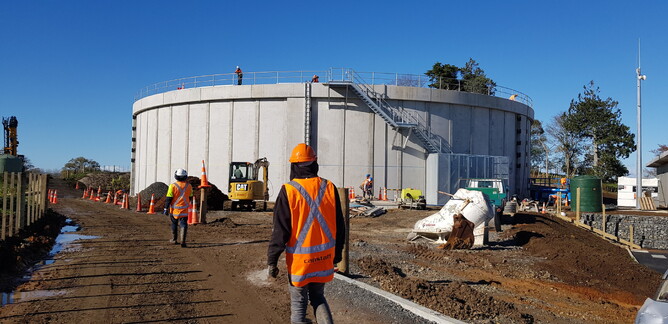In the next few months, decisions will be made in Wellington that will have massive implications for Councils and ratepayers, including people in Hamilton.
Reforming the way we deliver water services in New Zealand – water, stormwater and wastewater – has been discussed for some time. This week the issue heated up with reports released by Government showing the huge work and investment needed to get critical water infrastructure across New Zealand up to scratch.
I have known for some time that we must change the way we manage water if we are to look after the wellbeing of our communities in a way which is sustainable, environmentally responsible and affordable for all. I shared my views on this in a blog in August last year.
The Government has estimated investment of between $120 -$185 billion will be needed nationally to bring three waters up to speed. Without reform, reports suggest the cost of providing water services will at least double that and likely be more, especially in rural areas. That is a bitter pill to swallow.
Local Government Minister Nanaia Mahuta was absolutely right when she said “the affordability challenges facing our water infrastructure are too great for councils alone.” I agree. The question is, what next?
The Government is clear it wants water services currently delivered by 67 councils to be delivered instead by a smaller number of large and specialised water entities. Those entities – the size, shape and design of which is still unknown – will not align with council boundaries. Instead they will be much bigger and focus on cost efficiencies and effectiveness, safety and environmental standards.
A number of councils, Hamilton included, do a great job of delivering safe, reliable and secure water services. But that’s not the case everywhere as we have seen in Havelock and Dunedin. Now elected members everywhere must consider what is right for local communities and for New Zealand overall. We need to acknowledge the status quo is not working and certainly will not work in the future.
In Hamilton we have yet to consider and land on a formal position. There remain many areas of uncertainty. We need more detail on how the water industry will be regulated, how priorities will be determined and how local representation will be provided for.
I also believe we will need financial support from government to transition to any new structure with the costs spread fairly over generations. Government-driven costs are already causing significant pain in our city. Our Council cannot afford more.
In my view, ratepayers must know that three waters assets, built and paid for by the public, will always remain publicly-owned. That is critical. It appears the Government is also committed to this approach.
It is also clear, and is in fact law, that any Waikato-centric waters entity must also give effect to Te Ture Whaimana/the Vision and Strategy for the Waikato River which requires the restoration and protection of the Awa.
Finally, if data shows our communities will be better off with the reform – and it does – I believe all councils must be in. It’s my personal view that councils should only be able to opt out of national water reforms if they can demonstrate they alone can deliver a cost-effective, safe and sustainable service which their ratepayers, now and in the future, can afford.
While this week’s announcement has raised a raft of questions, Hamilton is already working with nearby councils and beyond to develop a strong response that will deliver the best result for our communities. Cross-boundary collaboration is not new to the city and we will work with any willing partner.
For me, working proactively together to navigate a better future, on our terms, makes sense. We must do what is best for our city and region but we must also do what is right for New Zealand overall. The status quo is no longer practical or fiscally responsible.
We cannot have a country where safe and secure water services are available only to some and are growing less and less affordable for all of us. This reform is about looking to the future, asking what is going to be best for our residents and their children and grandchildren.
There is still detail we don’t know, and may not know for some time. What is clear is that massive and far-reaching decisions must be made that will, alongside other reforms, change the face of local government forever. In 10 years time, local government will look nothing like it does now. None of us, Councilors and Mayors included, should be fearful of that.
Let’s feed into the process, not fight it, and keep building on the conversations we have been having for some time with regional colleagues, Iwi and government partners.
When it comes to three waters, it’s time to proactively shape a new future that works for all of us.





